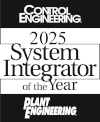What are the Current Pain Points with Supporting Utilities Such as Ammonia Refrigeration and Steam Generation?
When you look at supporting industrial utility systems like ammonia refrigeration, you may wonder how often you might actually encounter them. They appear far more in your daily life than you realize. Look at the rooftop of an industrial facility and see if you notice orange pipes or windsocks. It is likely that this facility has an ammonia refrigeration system. Now, when it comes to the maintenance of these systems, there are a few pain points that tend to plague facilities more than others. Aging Systems: These systems are decades old in most cases, many around 20–30 years old, and tend to require human labor occasionally. By comparison, the average industrial boiler system in the United States is around 30-40 years old, and many of these systems require large amounts of human interaction more often. The thing both these systems share is a lower level of automation, utilizing control panels dependent on relays and contactors to implement control schemes. Incorrect Sequencing Causing Inefficiency: Not only primitive automation, but the inability to adapt to changes in demand or load can present a challenging issue. This can often result in incorrect sequencing equipment due to simple control implementations, leading to lower overall system efficiency. A common instance of incorrect sequencing is having the largest piece of equipment either always running or brought online when demand is lower, which can be less efficient in its operation and energy consumption. Keeping in mind these systems can also be slow to start or restart if personnel are not quickly notified when a fault or issue occurs. Lack of Integration into Larger Control Systems: Even if a modern system has been implemented, it is less likely that it is part of a BMS (Building Management System) or DCS (Distributed Control System) which could better control … Continued





